
Granular Computing
Scope & Guideline
Connecting Academics and Industry through Granular Insights
Introduction
Aims and Scopes
- Multi-Criteria Decision-Making (MCDM):
The journal extensively covers methodologies that facilitate decision-making processes involving multiple criteria, often utilizing fuzzy logic and various fuzzy set theories to enhance decision accuracy. - Fuzzy Set Theory and Its Applications:
Research published in this journal frequently explores advanced fuzzy set theories, including Pythagorean fuzzy sets, interval-valued fuzzy sets, and intuitionistic fuzzy sets, focusing on their applications in real-world scenarios. - Aggregation Operators Development:
A significant focus of the journal is on the development of new aggregation operators, such as the Hamacher, Einstein, and Dombi operators, which are crucial for synthesizing information from various sources in decision-making contexts. - Granular Computing and Data Processing:
The journal addresses methods of processing and interpreting data through granular computing techniques, which enhance the understanding and utility of information in decision-making. - Applications in Various Domains:
The journal showcases applications of fuzzy logic and decision-making methodologies across diverse fields, including healthcare, transportation, finance, and environmental management, demonstrating the versatility of its research themes.
Trending and Emerging
- Advanced Fuzzy Set Theories:
There is a noticeable increase in research focusing on advanced fuzzy set theories, such as Pythagorean fuzzy sets and q-rung orthopair fuzzy sets, which offer more flexibility and precision in modeling uncertainty compared to traditional fuzzy sets. - Hybrid Decision-Making Approaches:
Emerging trends show a growing interest in hybrid methodologies that combine various decision-making approaches, such as integrating fuzzy logic with machine learning techniques to enhance predictive accuracy and decision support. - Artificial Intelligence (AI) Integration:
The integration of AI technologies, including deep learning and neural networks, with fuzzy decision-making frameworks is on the rise, showcasing the journal's commitment to exploring innovative solutions to complex decision problems. - Sustainability and Environmental Decision-Making:
There is an increasing focus on applying granular computing methods to sustainability challenges, emphasizing decision-making frameworks that support environmental management and resource allocation. - Health Informatics and Medical Decision-Making:
Research in the area of health informatics is expanding, with a growing number of studies addressing medical decision-making processes using fuzzy logic and multi-criteria approaches, reflecting the journal's relevance in contemporary healthcare challenges.
Declining or Waning
- Traditional Fuzzy Logic Applications:
There seems to be a decline in papers focusing on basic fuzzy logic applications without the integration of advanced techniques or hybrid models, as the field shifts towards more complex and nuanced approaches. - Static Decision-Making Models:
Research that relies solely on static models for decision-making is becoming less prevalent, as the journal increasingly emphasizes dynamic and adaptive methodologies that account for changing circumstances and uncertainties. - Simple Aggregation Techniques:
The journal has seen a decrease in the publication of works solely centered around traditional aggregation methods, indicating a preference for innovative and complex aggregation strategies that better address multi-criteria challenges.
Similar Journals
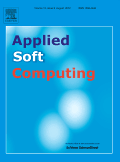
APPLIED SOFT COMPUTING
Pioneering research in the realm of soft computing.Applied Soft Computing is a premier international journal published by Elsevier, dedicated to advancing the field of soft computing in various applications. With an ISSN of 1568-4946 and E-ISSN of 1872-9681, it has established itself as a leading resource with a commendable impact factor and significant importance in its field. As of 2023, it ranks in the Q1 category of Software in Scopus, boasting a rank of 25 out of 407 journals in Computer Science, Software, representing the 93rd percentile among peers. The journal's primary objective is to publish high-quality, innovative research articles that explore soft computing methodologies and their applications across diverse domains, fostering interdisciplinary collaboration and advancing technological solutions. Based in the Netherlands, at Radarweg 29, 1043 NX Amsterdam, it serves as a vital platform for researchers, professionals, and students eager to contribute to and stay informed about the latest developments in soft computing.

Mathematical Foundations of Computing
Unlocking the Power of Mathematics in ComputingMathematical Foundations of Computing, published by the American Institute of Mathematical Sciences (AIMS), is a distinguished open-access journal that has been actively disseminating influential research in the fields of Artificial Intelligence, Computational Mathematics, Computational Theory and Mathematics, and Theoretical Computer Science since its inception in 2009. With its E-ISSN 2577-8838, this journal is committed to providing researchers and practitioners with cutting-edge mathematical theories and methodologies that underpin modern computational practices, which is critical for advancing the field. The journal proudly holds a Q3 categorization in several relevant domains as of 2023, reflecting its contribution and accessibility amid an evolving academic landscape. By offering open access to its content, it ensures that vital research is freely available to a global audience, enhancing collaboration and innovation. Positioned in the heart of the United States, Mathematical Foundations of Computing serves as a crucial resource for advancing knowledge and fostering discussions among researchers, professionals, and students passionate about the mathematical underpinnings of computing.
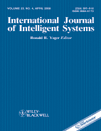
INTERNATIONAL JOURNAL OF INTELLIGENT SYSTEMS
Pioneering Insights in Intelligent Systems ResearchInternational Journal of Intelligent Systems, published by Wiley-Hindawi, stands at the forefront of the Artificial Intelligence, Human-Computer Interaction, Software, and Theoretical Computer Science fields. With an impressive Q1 ranking across multiple categories in 2023 and a robust track record since its inception in 1986, this journal is essential for researchers, professionals, and students alike who are eager to explore cutting-edge innovations and theoretical advancements. Located in the United Kingdom, the journal operates under the esteemed Wiley-Hindawi publishing house, ensuring a broad dissemination of high-quality research articles. The journal's diverse scope encompasses advancements in intelligent systems and their practical applications, fostering an interdisciplinary dialogue that encourages collaboration across various domains. Although Open Access options are not available, subscribers benefit from the rich repository of knowledge this journal offers, making it a vital resource in the rapidly evolving landscape of intelligent technologies.

International Journal of Fuzzy Systems
Pioneering Research at the Intersection of Theory and PracticeThe International Journal of Fuzzy Systems, published by SPRINGER HEIDELBERG, is a premier platform for disseminating cutting-edge research in the fields of Artificial Intelligence, Control and Systems Engineering, Computational Theory and Mathematics, and more. With an impressive impact factor reflected in its Q2 category rankings across various domains, this journal serves as a vital resource for researchers, professionals, and students eager to explore the applications of fuzzy logic in solving complex real-world problems. Established in 2004, the journal continues to contribute significantly to theoretical advancements and practical implementations in areas such as information systems and software engineering. The journal does not offer Open Access, ensuring a curated audience of engaged readers and contributors. Its rigorous peer-review process guarantees high-quality publications that resonate within the scientific community. For those interested in the intersection of theoretical insights and practical applications, the International Journal of Fuzzy Systems stands out as an essential venue for knowledge exchange and innovation.
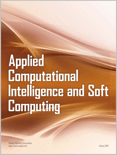
Applied Computational Intelligence and Soft Computing
Advancing the Frontier of Intelligence and ComputingApplied Computational Intelligence and Soft Computing, published by HINDAWI LTD, is a premier open access journal that has been disseminating critical research since 2009, focusing on the intersection of artificial intelligence and soft computing. With an impressive array of quartile rankings in 2023, including Q2 in Civil and Structural Engineering and Computational Mechanics, this journal has established itself as a significant contributor to the fields of computer science and engineering. Based in Egypt, it plays a vital role in advancing knowledge by providing researchers, professionals, and students with easy access to high-quality studies. The journal’s rigorous peer-review process ensures that only the most impactful research is highlighted, making it an essential resource for those looking to stay abreast of the latest innovations and methodological advancements in applied computational intelligence. Its Scopus rankings further affirm its influence and reputation within the academic community, exemplifying its commitment to facilitating collaboration and fostering intellectual discourse in various scientific domains.
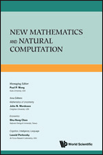
New Mathematics and Natural Computation
Pioneering Research in the Realm of Natural ComputationNew Mathematics and Natural Computation, published by World Scientific Publishing Co Pte Ltd, is a pivotal journal in the realms of applied mathematics and computational theories, catering to a diverse audience of researchers, professionals, and students. With an ISSN of 1793-0057 and E-ISSN 1793-7027, this journal serves as a critical platform for disseminating innovative research and methods that intertwine mathematical theories with natural computation processes. Operating from Singapore, it emphasizes accessibility and collaboration in advancing interdisciplinary knowledge, despite its current Q4 rankings across relevant categories such as Applied Mathematics and Human-Computer Interaction—highlighting the journal’s commitment to growth and improvement in a competitive publishing landscape. As a source of insightful findings and applications in mathematics and computer science, it invites contributors to explore the dynamic intersections between these fields and foster academic dialogue. Researchers aiming to engage with cutting-edge advancements will find this journal instrumental for their work from its inaugural issue in 2012 through its projected publications into 2024.

Journal of Applied Mathematics & Informatics
Unveiling New Frontiers in Applied Mathematics and Computational Science.Journal of Applied Mathematics & Informatics is a peer-reviewed academic journal published by the Korean Society of Computational & Applied Mathematics (KSCAM), focusing on the integration and application of mathematical theories and computational techniques across various domains. Established in 2019, this journal serves as a platform for researchers, professionals, and students to share innovative methodologies, practical applications, and theoretical advancements in fields like analysis, applied mathematics, and computational theory. As a Q4 ranked journal according to the 2023 category quartiles in analysis, applied mathematics, computational mathematics, and miscellaneous mathematics, it provides a valuable, albeit niche, contribution to the academic landscape. While the journal currently operates without open access options, it aims to disseminate quality research to foster collaboration and knowledge exchange within the mathematics and computer science communities. Researchers looking to explore emerging trends and methodologies in applied mathematics and informatics will find an essential resource in this journal, which is based in Daejeon, South Korea.
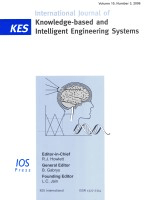
International Journal of Knowledge-Based and Intelligent Engineering Systems
Empowering Innovations in Knowledge-Based TechnologiesThe International Journal of Knowledge-Based and Intelligent Engineering Systems, published by IOS PRESS, serves as a vital platform for scholars and practitioners involved in the fields of Artificial Intelligence, Control and Systems Engineering, and Software Development. Founded in 2004 and continuously publishing through to 2024, this journal stands out with its comprehensive coverage of innovative methodologies and applications that leverage knowledge-based systems. Although currently listed in Q4 for Artificial Intelligence and Q3 for Control and Systems Engineering, it features an increasing trajectory in the scientific community, as indicated by its rankings in Scopus—which reflects the growing importance of intelligent engineering systems in contemporary research. With a commitment to disseminating cutting-edge research without open access constraints, this journal is essential for those seeking to understand and contribute to advancements in intelligent systems. Join a global community of researchers and industry leaders by engaging with the latest findings shared in this well-regarded journal.
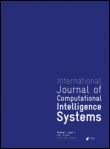
International Journal of Computational Intelligence Systems
Connecting Researchers with Cutting-Edge InsightsInternational Journal of Computational Intelligence Systems, published by SPRINGERNATURE, is a leading open-access journal that has been at the forefront of research in the field of computational intelligence since 2008. With an ISSN of 1875-6891 and an E-ISSN of 1875-6883, this journal occupies a prominent place in the academic landscape, achieving impressive rankings in its categories: Q2 in both Computational Mathematics and Computer Science (miscellaneous), reflecting its significance and relevance to researchers, professionals, and students. Based in Switzerland, the journal is committed to disseminating high-quality research and fostering innovation in computational methodologies, algorithms, and applications. Its strong impact factor and Scopus rankings—31/189 in Computational Mathematics and 53/232 in General Computer Science—underscore its critical role in advancing knowledge in these interdisciplinary fields. As an open-access journal, it provides unparalleled accessibility to cutting-edge research, supporting the global community in staying at the forefront of computational intelligence advancements.

Journal of Advanced Computational Intelligence and Intelligent Informatics
Unlocking the Potential of Intelligent InformaticsThe Journal of Advanced Computational Intelligence and Intelligent Informatics, published by FUJI TECHNOLOGY PRESS LTD, stands as a pivotal platform in the fields of Artificial Intelligence, Computer Vision, and Human-Computer Interaction. Established in 1997, this Open Access journal has been providing accessible insights into the latest advancements in computational intelligence and informatics since 2007. With its ISSN 1343-0130 and E-ISSN 1883-8014, this journal invites a diverse readership, including researchers, professionals, and students eager to explore innovative methodologies and applications. Despite its current Q4 ranking in the relevant categories, the journal remains committed to contributing valuable knowledge to the academic community and enhancing the global discourse in computational technologies. With its focus on fostering communication and collaboration among scholars, the journal plays an essential role in driving forward the understanding of intelligent systems and their applications in various domains.